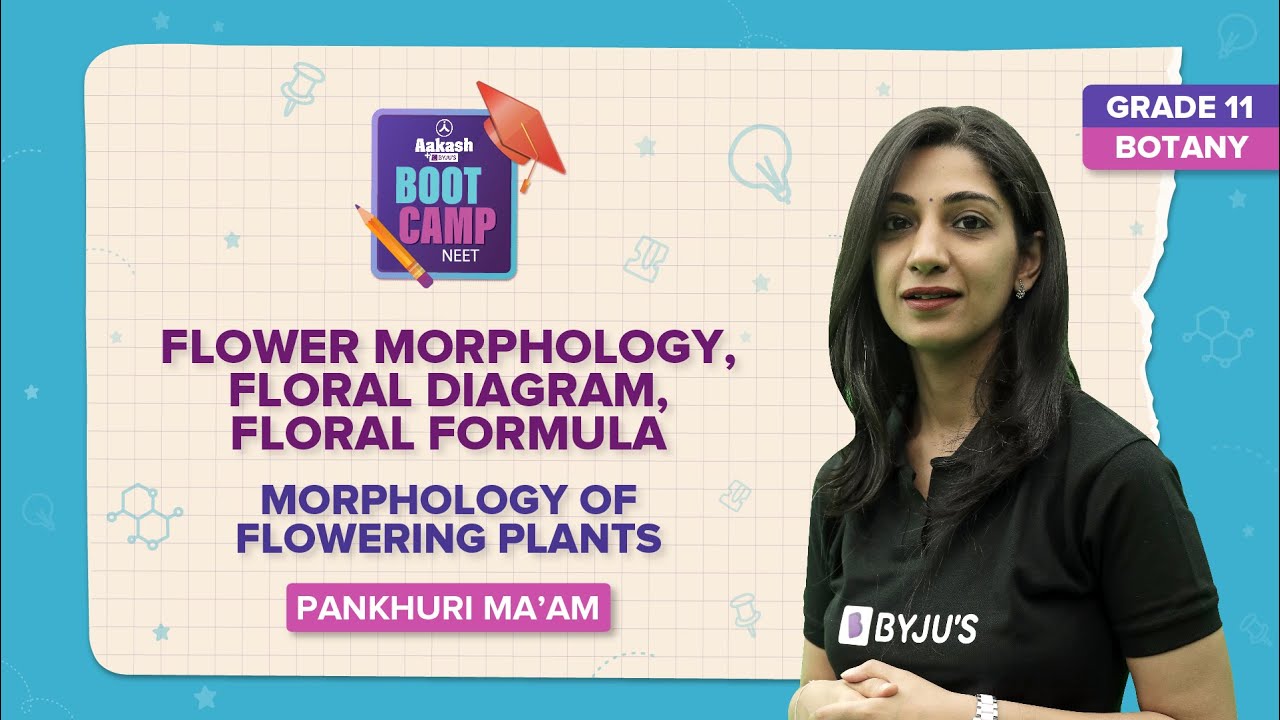A floral formula is the numeric representation of different floral structures that constitute a flower. It is used to describe the salient features/characteristics of a flower with the help of certain symbols and signs known as floral symbols. The floral formula is often represented along with a floral diagram.
Floral parts are calyx(K), corolla(C), androecium(A) and gynoecium(G).
1. Tricarpellary, syncarpous gynoecium is found in the flowers of
(a) Liliaceae
(b) Poaceae
(c) Fabaceae
(d) Solanaceae
Answer: (a)
2. Perigynous flowers are found in________.
(a) Rose
(b) China rose
(c) Cucumber
(d) Guava
Answer: (a)
3. Tulip, onion, cucumber, guava, potato, brinjal, mustard, china rose – amongst these, how many have superior ovary?
(a) Six
(b) Five
(c) Four
(d) Three
Answer: (a)
4. Standard petal of a papilionaceous corolla is known as_______.
(a) Carina
(b) Corona
(c) Vexillum
(d) Pappus
Answer: (c)
5. Free-central placentation is found in_______.
(a) Citrus
(b) Brassica
(c) Argemone
(d) Dianthus
Answer: (d)
6. _________ is the large shield-shaped cotyledon, the wheat grain possesses in its embryo
(a) coleoptile
(b) scutellum
(c) coleorhiza
(d) epiblast
Answer: (b)
7. These flowers show radial symmetry______.
(a) Cassia
(b) Pisum
(c) Trifolium
(d) Brassica
Answer: (d)
8. Keel is the characteristics feature of the flower of_______.
(a) tomato
(b) aloe
(c) Indigofera
(d) tulip
Answer: (c)
9. These many plants among Salvia, Sesbania, Mustard, Indigofera, Aloe, Allium, groundnut, turnip, and radish gram possess stamens with diverse lengths in their flowers
(a) six
(b) five
(c) four
(d) three
Answer: (c)
10.  is the floral formula of:
is the floral formula of:
(a) Brassica
(b) Petunia
(c) Sesbania
(d) Allium
Answer: (b)
Stay tuned with BYJU’S NEET for more MCQs and other NEET related study materials.
Recommended Video:

Related Links:
| MCQs On Parthenocarpy |
| MCQs On Parts Of Plants |
Comments